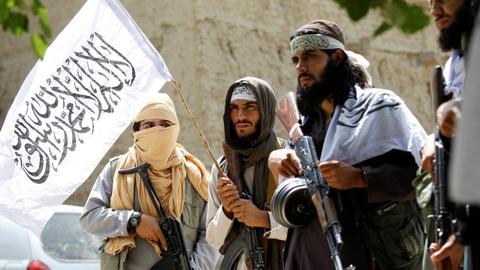The increasing attacks from Daesh in Afghanistan have raised concerns over the potency of the steadily growing terrorist group, even as the Taliban inches closer to a peace deal to end the 18-year war in the country.
The most recent Daesh attack on an Afghan Shia wedding celebration in Kabul, claiming over 80 lives, has experts speculating whether the group could fill the vacuum in regional militancy in light of the Taliban negotiating peace with the US.
Daesh has already caused substantial casualties to minority groups, while simultaneously battling the Taliban on several fronts. The concerns over the growing presence of the dreaded terror group are not just limited to pro-government forces, but are also festering among the Taliban ranks.
“In their own assessment, the Taliban are failing to fight Daesh,” said Hekmat Azamy, Deputy Director at the Centre for Conflict and Peace Studies (CAPS), who has spent a considerable part of the last decade studying regional insurgencies, and more recently the growth of Daesh in Afghanistan.
In an interview with TRT World, he said the Taliban’s recent reshuffle of commanders was indicative of its changing strategies towards Daesh.
“This is from [intel gathered from] their own discussions where they’ve sent top commanders to regions like Kunar to help local Taliban fight Daesh,” Azamy said. Many eastern provinces like Kunar and Nangarhar have seen increased Daesh activities.
Meanwhile, the Taliban has engaged in several rounds of slow, albeit promising talks with the US administration in a bid to end the almost two-decade-long conflict. When finalised, it could potentially lead to a much-awaited ceasefire, followed by intra-Afghan talks between the Afghan government, veteran politicians and the Taliban.
Before the Taliban has ended its negotiations with the US and moved on to intra-Afghan talks, the militant group is being haunted by the looming threat of defections.
Experts believe that several Taliban fighters, especially those representing the Salafi ideology, are likely to join Daesh, with whom they have more ideological proximity.
“The Taliban fighters will have three options, to either join the peace process, or get killed, or join Daesh. It’s possible many hardcore Salafi ideological guys might turn to Daesh. They are starting to believe that the Taliban cause is not Islamic, but rather nationalist,” Azamy said, adding that while Daesh recruitment is already high, it is likely to increase once the peace deal is struck.
Read the full story on TRT World
